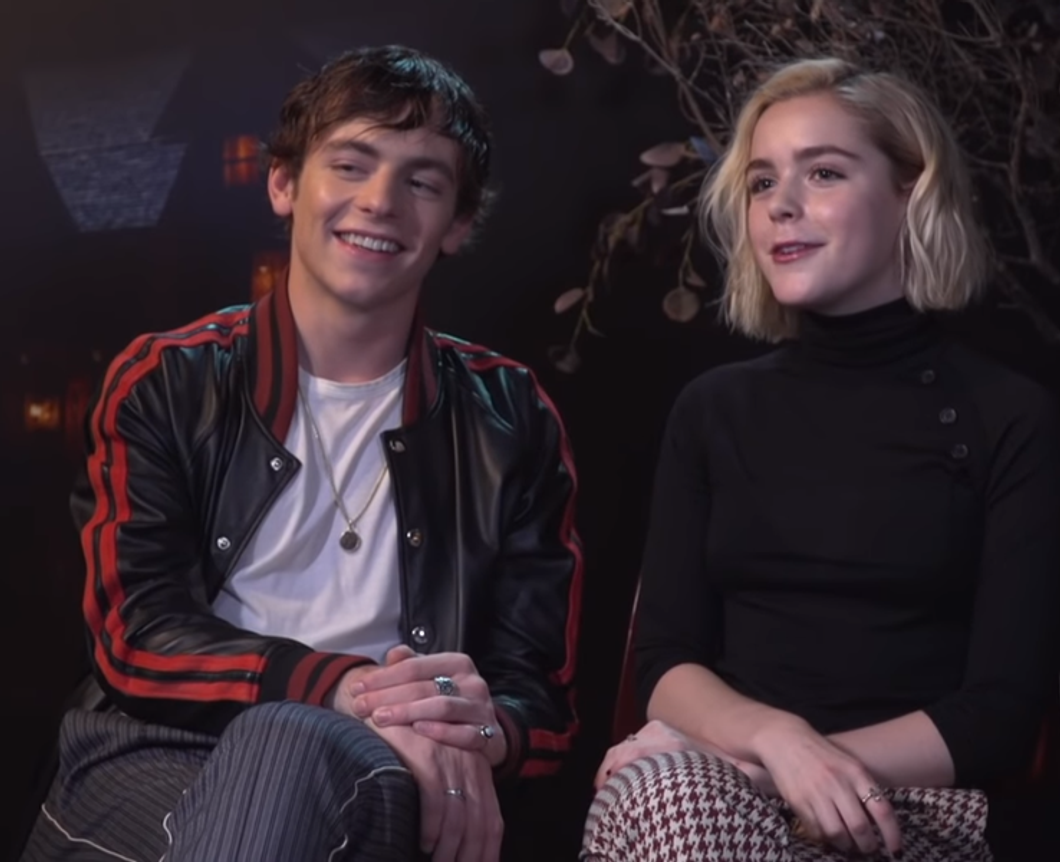Fans of
Chilling Adventures of Sabrina are currently praising Netflix and the cast and crew of
Sabrina for Theo's trans storyline. For those of you who do not know, Lachlan Watson, who plays Susie/Theo, is a non-binary actor. In the original
Sabrina script, Susie comes out as a trans man early in the show. Moreover, when speaking to
Bustle about Theo not identifying as a trans man in season 1, Lachlan said: "I may have influenced the writers to hold off. I talk so much about myself and my identity as a non-binary person and I think they listened, and if anything it helped them understand that labels aren't everything. Susie is on an ongoing queer journey, just like myself."
Thanks to Lachlan's own input and editing of the role, season 1 of
Sabrina gives Theo the chance to discover themselves at their own pace. Giving Theo time to naturally grow and developed created a much more realistic character that LGBTQ+ can relate to. Therefore, perhaps what makes Theo such an amazing character is that he is played by Lachlan. Since Lachlan's own story overlaps with Theo's, they constantly bring their own life experience to the character. Talking to
Bustle about identity, Lachlan said that they used to identify "fully and completely as a trans male" before realizing they were non-binary.
Moreover, in season 2, Theo slowly figures out how they identify after using the boy's locker room, trying out for the boy's basketball team, and using male pronouns when they come out.
That said, what is great, but also arguably unrealistic, is how accepting Theo's friends and family are.
As described in
PopBuzz, "In a scene with Ros, Harvey says: 'We just call her Theo now?' Ros then replies: 'No, we call him Theo. Theo might look like a girl but he's not, he's a boy and that's how he's always been. He's just ready now to live as himself, like Theo.' Harvey then answers: 'Ok, Susie no more. Now Theo.' This is important because Harvey is not asking Theo insensitive questions. He is doing the work himself. Theo later comes out to his Dad and, while his Dad struggles to come to terms with the news at first (he calls Theo his 'best girl' and dismisses him initially), he comes around after Theo says: 'I can't keep going on as a girl anymore.'" The scene is so necessary because it emphasizes how much Theo's Dad loves him and is still there for his son.
Also, at the beginning of season 2 Theo is constantly bullied by his basketball teammates; however, by the end of the season after he concludes that he is a man, said teammates respect him. Theo's main bully, Billy Marlin, even apologizes for all the torment he put Theo through. As a result, Sabrina emphasizes how easy it is for people in real life to support the LGBTQ+ community. There is no reason to bully such people, which the Netflix series effortlessly conveys to viewers.
However, having an extremely strong support group of friends who accept him for who he is is not realistic. Although Theo experiences bullying from his basketball teammates and classmates, like so many trans people actually do, it is not enough to show how messy, complicated and conflicted LGBTQ+ people's lives typically are. Theo's transition did not feel like a real-life transition story, but rather what so many people mistakenly believe happens. Although Sabrina is one of the best series in TV history to accurately represent trans people on and off screen, the LGBTQ+ community deserves more than what we currently have in the media.
As expressed by Romper, although trans representation in the media has improved over the last few years, the LGBTQ+ community craves for any trans characters and stories in any show or movie. Moreover, although it is great that Sabrina is providing the LGBTQ+ community with a trans character on a popular TV show, the fact that such a role and storyline is rare is absurd.
No longer should the LGBTQ+ community accept the social roles society currently casts them in. I don't know about you, but I'm tired of LGBTQ+ actors being the minority in the entertainment industry and LGBTQ+ characters being considered rare in film. Although these events are exciting, they should not be as big of a deal as they are since they should be an everyday normal occurrence.
So, I leave you to ponder this, when will it become the norm instead of the exception for the LGBTQ+ community to be represented in the media? And is decent representation worth sacrificing for good storytelling?
















